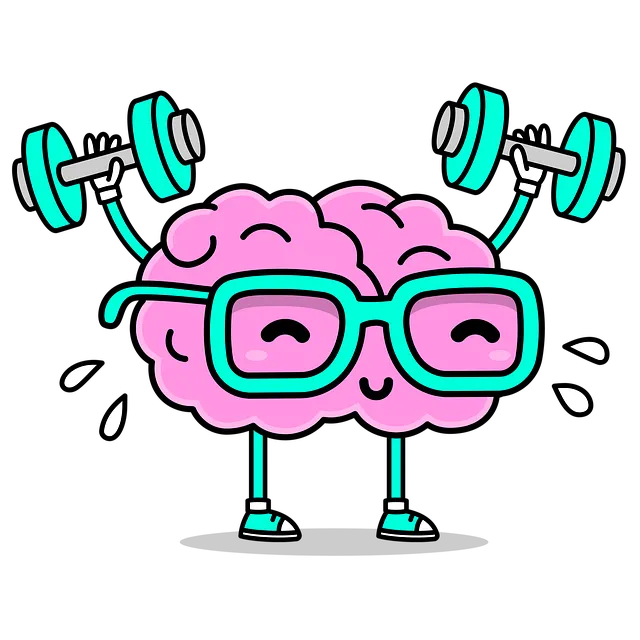Cultural competency is key to effective mental health services at Kaiser Boulder, where a diverse community requires personalized care respecting various ethnic, racial, and socioeconomic backgrounds. Training programs for mental health professionals should incorporate interactive elements like role-playing and case studies to address diverse learning needs. By measuring success through assessments, workshops, and community feedback, Kaiser Boulder ensures its cultural competency initiatives remain innovative and responsive to the evolving needs of its patient population, ultimately improving mental health outcomes for all patients seeking services through them. Learn how to access tailored mental health support at Kaiser Boulder.
“Cultural competency in healthcare is vital for delivering effective mental health services, especially in diverse communities. This article explores strategies to enhance cultural awareness among professionals, focusing on Kaiser Boulder’s innovative approaches. We delve into the significance of understanding cultural nuances and their impact on access to care. Additionally, we present a framework for designing comprehensive training programs tailored to mental health practitioners. By examining measurement techniques, we emphasize continuous improvement in cultural competency, ensuring optimal patient outcomes.”
- Understanding Cultural Competency in Healthcare: Why It Matters for Mental Health Services
- The Role of Kaiser Boulder in Promoting Cultural Awareness and Access to Care
- Designing Effective Training Programs: Key Components for Mental Health Professionals
- Measuring Success and Continuous Improvement in Cultural Competency Training
Understanding Cultural Competency in Healthcare: Why It Matters for Mental Health Services

Cultural competency is an essential aspect of delivering effective mental health services, especially within diverse communities like Kaiser Boulder. Understanding and respecting cultural differences can significantly enhance patient care and outcomes. In the context of mental health, this means recognizing that individuals from various ethnic, racial, and socioeconomic backgrounds may have unique perspectives on health, illness, and healing. For example, some cultures emphasize community support and collective wellness, while others prioritize individual privacy and self-reliance in seeking treatment.
By incorporating cultural competency training, healthcare providers can improve their ability to connect with patients from different backgrounds. This is crucial when offering services like Trauma Support through Kaiser Boulder’s programs, where understanding a patient’s cultural context can significantly impact the effectiveness of treatments. The Mind Over Matter principles, which encourage mental wellness through various therapeutic approaches, should be tailored to respect and incorporate cultural beliefs and practices. This personalized approach fosters trust, encourages open communication, and ultimately leads to better engagement in mental health care.
The Role of Kaiser Boulder in Promoting Cultural Awareness and Access to Care

Kaiser Boulder stands as a beacon of cultural awareness and accessibility within the healthcare sector. This leading medical institution recognizes the profound impact that cultural competency has on patient outcomes, particularly in mental health services. To this end, Kaiser Boulder has developed comprehensive programs like Mental Wellness Coaching, which goes beyond traditional therapy by incorporating tailored coaching strategies to support individuals in navigating their emotional well-being.
Through these initiatives, Kaiser Boulder not only addresses disparities in access to care but also offers trauma-informed support services, ensuring that every patient feels heard and respected. By fostering a culturally responsive environment, the organization promotes innovative techniques for emotional well-being promotion, ultimately enhancing the quality of mental health care available through its services.
Designing Effective Training Programs: Key Components for Mental Health Professionals

Effective training programs for mental health professionals should incorporate a multi-faceted approach to cater to diverse learning styles and needs. These programs must go beyond traditional lectures and include interactive elements like role-playing scenarios, group discussions, and case studies related to real-world challenges faced by patients from various cultural backgrounds. By engaging participants in these activities, trainers can facilitate a deeper understanding of cultural nuances and their impact on mental health care.
Additionally, integrating evidence-based Communication Strategies and Emotional Well-being Promotion Techniques into the training curriculum is essential. Mental health professionals should be equipped with tools to create safe and non-judgmental spaces for patients from different cultural groups. This involves learning effective active listening skills, using culturally sensitive language, and tailoring interventions to respect individual beliefs and values while ensuring access to quality mental health services through Kaiser Boulder.
Measuring Success and Continuous Improvement in Cultural Competency Training

Measuring success and driving continuous improvement are vital components of any cultural competency training program, especially when aimed at enhancing healthcare services like those provided by Kaiser Boulder for mental health. To gauge effectiveness, organizations can employ a multi-faceted approach, including pre- and post-training assessments to track knowledge gain and attitude shifts among participants. These evaluations should touch on critical areas such as cultural awareness, bias identification, and communication skills. Additionally, collecting feedback from both trainees and the wider community can offer valuable insights into the program’s impact.
One successful strategy involves integrating Depressions Prevention, Coping Skills Development, and Stress Management Workshops within the training curriculum. By evaluating improvements in these areas, trainers can demonstrate tangible progress in participants’ cultural competency. This data not only helps to refine existing programs but also encourages ongoing innovation, ensuring that the organization remains responsive to the evolving needs of its diverse patient population, including those seeking mental health services through Kaiser Boulder.
Healthcare provider cultural competency training is a vital step towards ensuring equitable access to mental health services, as demonstrated by Kaiser Boulder’s leading initiatives. By understanding cultural nuances and promoting awareness, we can create an inclusive environment that fosters trust and improves patient outcomes. Effective training programs, centered around key components like education, practice, and feedback, empower mental health professionals to navigate diverse communities. Measuring success through continuous improvement allows us to refine these programs, ultimately enhancing the quality of care provided to all individuals seeking mental health services through Kaiser Boulder.






